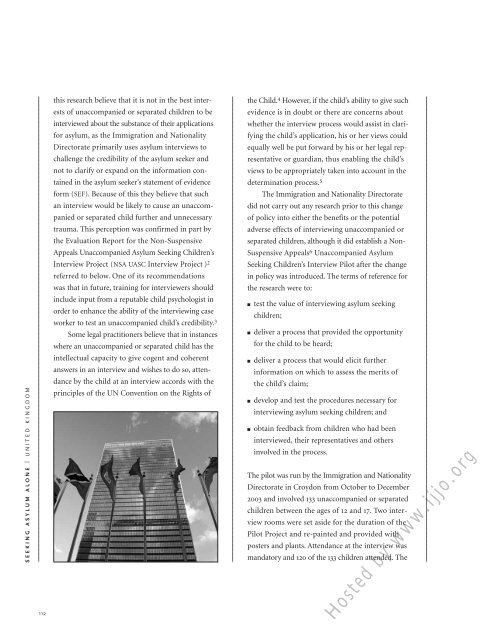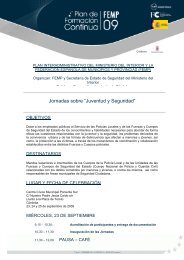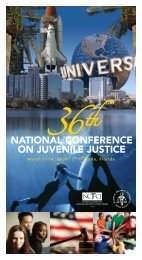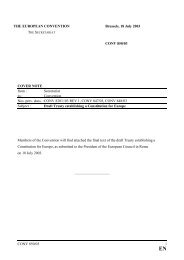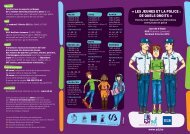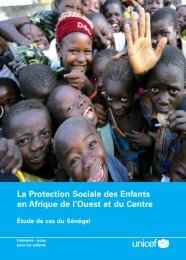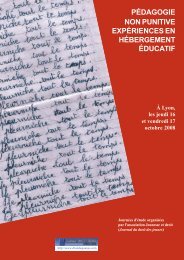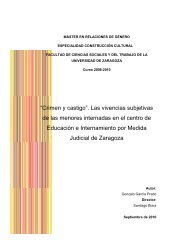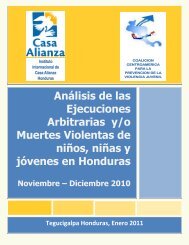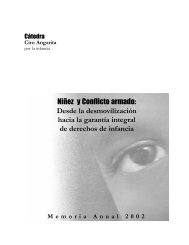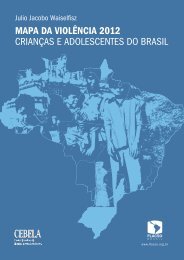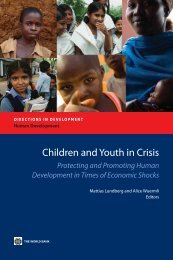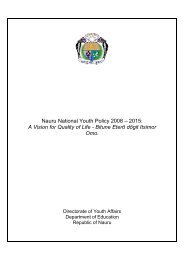Hosted by www.ijjo.org
Hosted by www.ijjo.org
Hosted by www.ijjo.org
Create successful ePaper yourself
Turn your PDF publications into a flip-book with our unique Google optimized e-Paper software.
this research believe that it is not in the best inter-<br />
the Child. 4 However, if the child’s ability to give such<br />
ests of unaccompanied or separated children to be<br />
evidence is in doubt or there are concerns about<br />
interviewed about the substance of their applications<br />
whether the interview process would assist in clari-<br />
for asylum, as the Immigration and Nationality<br />
fying the child’s application, his or her views could<br />
Directorate primarily uses asylum interviews to<br />
equally well be put forward <strong>by</strong> his or her legal rep-<br />
challenge the credibility of the asylum seeker and<br />
resentative or guardian, thus enabling the child’s<br />
not to clarify or expand on the information con-<br />
views to be appropriately taken into account in the<br />
tained in the asylum seeker’s statement of evidence<br />
determination process. 5<br />
form (SEF). Because of this they believe that such<br />
The Immigration and Nationality Directorate<br />
an interview would be likely to cause an unaccom-<br />
did not carry out any research prior to this change<br />
panied or separated child further and unnecessary<br />
of policy into either the benefits or the potential<br />
trauma. This perception was confirmed in part <strong>by</strong><br />
adverse effects of interviewing unaccompanied or<br />
the Evaluation Report for the Non-Suspensive<br />
separated children, although it did establish a Non-<br />
Appeals Unaccompanied Asylum Seeking Children’s<br />
Suspensive Appeals 6 Unaccompanied Asylum<br />
Interview Project (NSA UASC Interview Project ) 2<br />
Seeking Children’s Interview Pilot after the change<br />
referred to below. One of its recommendations<br />
in policy was introduced. The terms of reference for<br />
was that in future, training for interviewers should<br />
the research were to:<br />
include input from a reputable child psychologist in<br />
order to enhance the ability of the interviewing case<br />
worker to test an unaccompanied child’s credibility. 3<br />
Some legal practitioners believe that in instances<br />
where an unaccompanied or separated child has the<br />
■<br />
■<br />
test the value of interviewing asylum seeking<br />
children;<br />
deliver a process that provided the opportunity<br />
for the child to be heard;<br />
SEEKING ASYLUM ALONE | UNITED KINGDOM<br />
112<br />
intellectual capacity to give cogent and coherent<br />
answers in an interview and wishes to do so, attendance<br />
<strong>by</strong> the child at an interview accords with the<br />
principles of the UN Convention on the Rights of<br />
■<br />
■<br />
■<br />
deliver a process that would elicit further<br />
information on which to assess the merits of<br />
the child’s claim;<br />
develop and test the procedures necessary for<br />
interviewing asylum seeking children; and<br />
obtain feedback from children who had been<br />
interviewed, their representatives and others<br />
involved in the process.<br />
The pilot was run <strong>by</strong> the Immigration and Nationality<br />
Directorate in Croydon from October to December<br />
2003 and involved 133 unaccompanied or separated<br />
children between the ages of 12 and 17. Two interview<br />
rooms were set aside for the duration of the<br />
Pilot Project and re-painted and provided with<br />
posters and plants. Attendance at the interview was<br />
mandatory and 120 of the 133 children attended. The<br />
<strong>Hosted</strong> <strong>by</strong> <strong>www</strong>.<strong>ijjo</strong>.<strong>org</strong>


